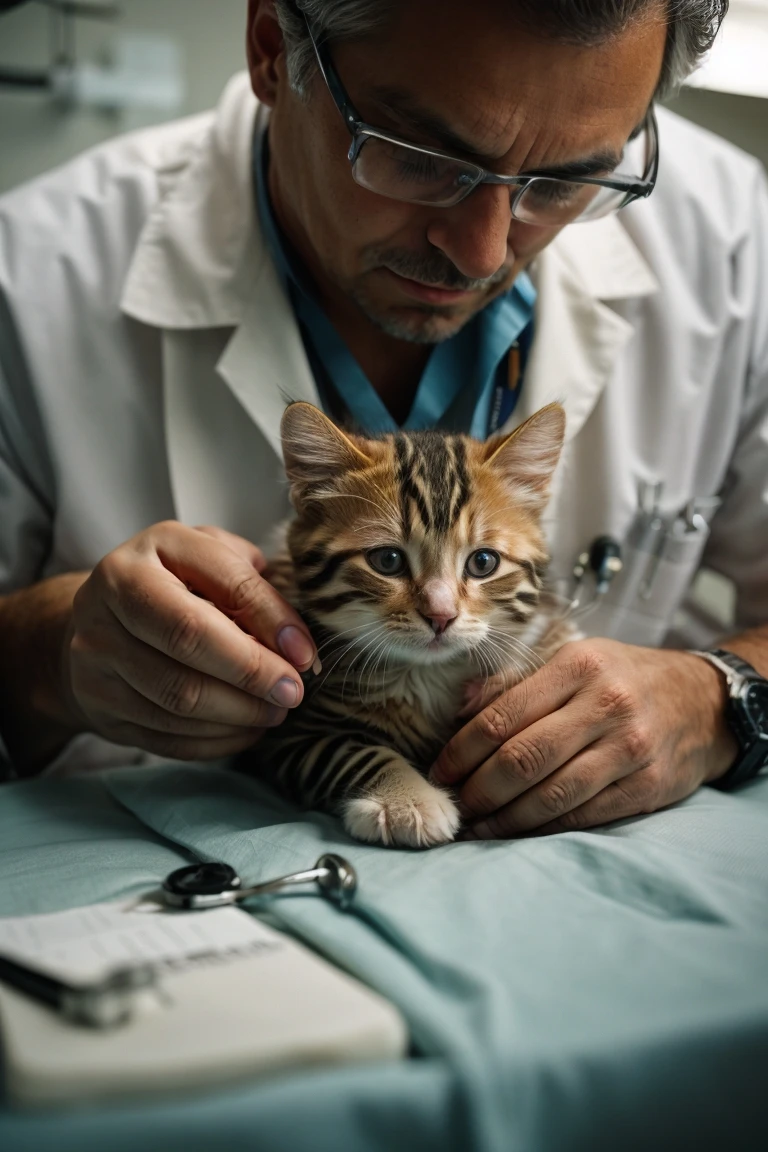Common Health Issues in Newborn Kittens and How to Address Them

The arrival of a litter of kittens is an exciting time. But newborn kittens are extremely fragile, and health threats can arise quickly. Being alert to common medical problems and responding promptly when they occur gives kittens the best chance of thriving. Some vigilant monitoring and gentle interventions on your part can make all the difference during this critical time.
Why Newborn Kittens Are Vulnerable
Several factors put new kittens at increased health risk:
- Undeveloped immune system unable to fight infections
- Inability to self-regulate body temperature
- Frequent contact with pathogens from mom and environment
- Reliance on mom for nourishment - issues can arise with nursing
- Delicate, rapidly growing bodies sensitive to disruptions
Threats can arise both from within and outside the womb. Understanding common conditions helps you catch concerning symptoms early.
Potential Health Issues to Watch For
Be alert for any of these common medical problems in newborns:
Fading Kitten Syndrome
Generalized weakness, lethargy and failure to thrive. Caused by birthing complications, congenital defects, infections, or inadequate nursing. Quick veterinary treatment is essential for survival odds.
Respiratory Infections
Sneezing, coughing, discharge from nose/eyes, wheezing. May be viral or bacterial. Consult a vet for evaluation and appropriate antibiotic if needed. Isolate affected kittens.
Hypothermia
Body temperature below 95°F. Caused by environmental cold, inadequate nursing, or poor circulation. Warm kittens gradually with supplemental heating sources.
Diarrhea
Loose stool caused by infections, parasites, food reactions, stress. Can lead to dehydration. Have stool tested to identify cause. Provide hydration support.
Constipation
Straining to defecate without success. Massage abdomen gently with warm cloth. If no improvement, consult vet promptly. Can be lethal.
Fleas
Tiny dark insects visible on skin, in nest. Cause itching, anemia (especially dangerous in kittens). Use veterinary-approved topical treatment. Disinfect bedding.
Birth Defects
Cleft palate, clubbed limb, heart murmurs etc. Confirm with vet exam. May require special management or surgical correction.
Watch closely for any concerning symptoms and have the vet examine ASAP. Prompt treatment is critical.
Monitoring Newborn Health Daily
Conduct brief daily health checks:
- Weigh kittens on a scale - ensure gaining steadily
- Check body temperature with rectal thermometer
- Monitor nursing and abdomen - watch for full vs. sunken belly
- Look for normal pink color, clear eyes/nose, clean skin
- Assess activity level and sociability - moving OK? interacting with others?
- Palpate for any abnormal masses, swelling, bone issues
- Inspect for signs of fleas, diarrhea, discharge
Familiarity with normal appearance and behaviors allows you to detect subtle changes that may indicate illness. Consult your veterinarian promptly if anything seems “off.”
Supplementing the Mother’s Care
While mom’s care is ideal, sometimes a helping hand is needed:
Assist Feeding Underweight Kittens
Supplement with kitten milk replacer. Use bottles/syringes allowing them to suckle. Hold upright to prevent aspiration.
Keep Kittens Warm
If chilled, provide supplemental heat like heating pads or incubators per vet instructions. Monitor body temperature.
Stimulate Bowel Movements
Gently rub genital area with warm cloth if constipated. This mimics the mother’s licking.
Prevent Dehydration
Give kitten pediatric electrolyte solution. Add drops along gums or rub into skin if not drinking enough.
Work under guidance of your veterinarian to ensure interventions are safe and appropriate to the situation.
When to Call the Veterinarian
Contact your vet immediately if you notice:
- Failure to nurse or gain weight
- Labored breathing, persistent sneezing/coughing
- Stool changes - diarrhea, constipation, blood
- Signs of fading kitten syndrome
- Abnormal appearance/behavior
- Apparent pain, swelling, injury
- Any other concerning symptoms
Veterinary examination and possible hospitalization are essential to give struggling neonates a fighting chance. Waiting risks a grave outcome.
With attentive monitoring and prompt action when concerns arise, you can help mitigate risks during this delicate phase. Your interventions provide a valuable safety net alongside the dedicated care of mom. With support and vigilance, the kittens you welcome into the world will flourish.